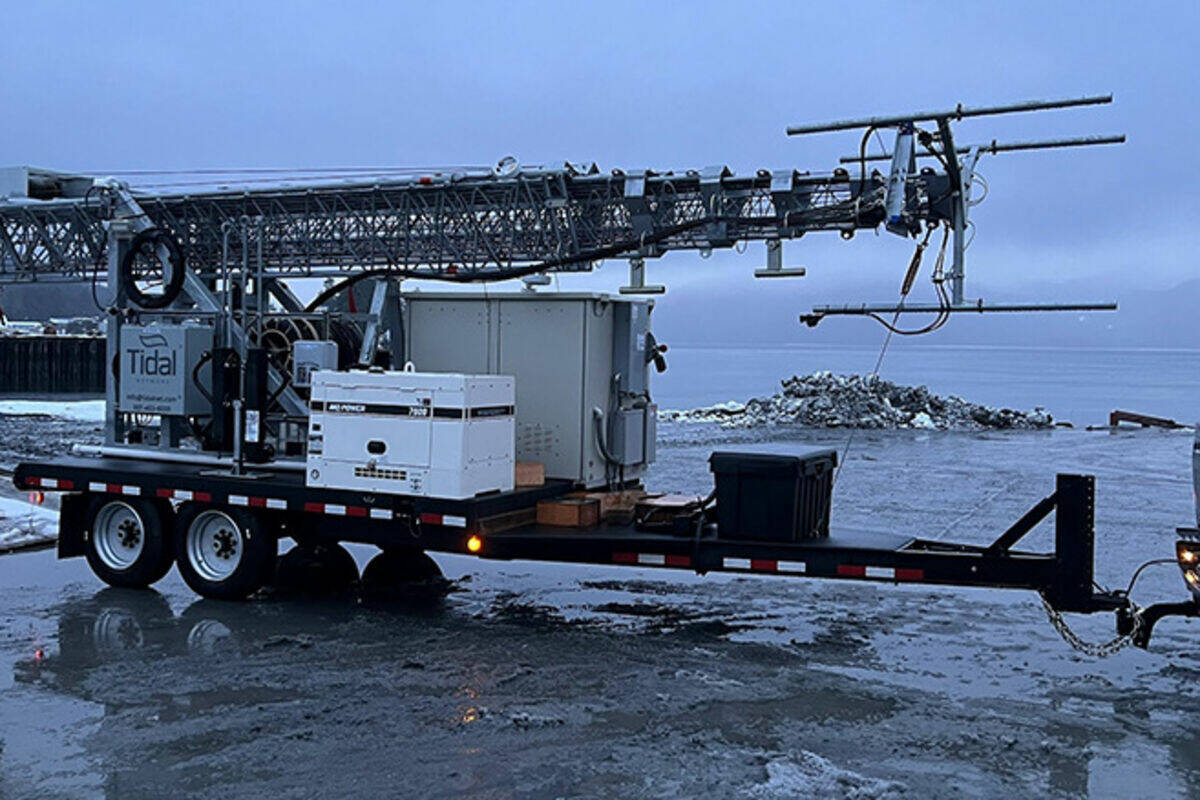Wireless internet service for areas of Wrangell with limited or no access to high-speed downloads should be in operation later this year.
The broadband service initially will start with transmitting and receiving equipment in position atop two existing cell towers, along with two pop-up “cells on wheels (COWS),” explained Chris Cropley, director of the Tidal Network for the Central Council of the Tlingit and Haida Indian Tribes of Alaska.
The portable cell units arrived in Wrangell last week. Each unit cost about $100,000, including electronics and an extendable tower that can reach up to 120 feet high, Cropley said.
“We should see service on the existing towers this year, hopefully, the COWS this year as well,” he said. “We have all the equipment purchased and most of the paperwork in place.”
Tidal Network will lease space on existing towers as a temporary measure until it can obtain land and put up maybe three permanent towers to extend its reach in the community. “We will hopefully see service on the permanent towers in 2024,” Cropley said.
Finding the best sites for the COWS and permanent towers is the issue. “We are held up until we have property. We have several lots in mind and have done a lot of work on the design and options,” he said.
“Once we have the land acquired (for COWS), we can stand them up relatively quickly, within a week or two.”
The plan is to install the portable units “to deliver broadband to people on the edges of town,” Cropley said. Later, “we will build permanent towers … and move the COWS as needed.”
The new network will cater to “the unserved and underserved first,” by focusing on areas of Wrangell that have limited or no access to high-speed internet.
Tidal Network will be available to tribal and non-tribal citizens. The anticipated cost is $75 per month for the base program, which will be slower than commercial broadband in areas served by fiber optic but will be fast enough for video conferencing and most streaming.
The wireless broadband service is intended to fill the gap in areas where fiber optic is not a feasible option.
Tlingit and Haida is using federal pandemic aid to pay for its Tidal Network pilot projects in Wrangell and Sitka.
Separate from the pilot project, the Central Council last November announced it had received a $50 million federal grant for broadband infrastructure, part of the Tribal Connectivity Program funded by the 2021 federal Bipartisan Infrastructure Law.
The new money will go toward building 30 towers in more than 20 communities across the region, Cropley told a gathering of the Southeast Conference in Juneau last week.
The plan includes extending broadband services to “truly remote” locations, such as fish camps, he said.
• This story originally appeared in the Wrangell Sentinel.

